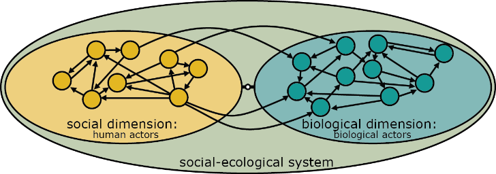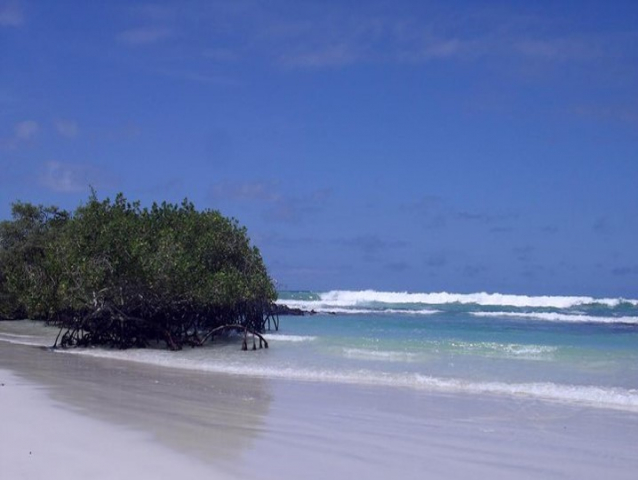Goals of the project
Understanding connectivity within social-ecological systems (SES) helps in establishing meaningful management strategies for sustainable use of marine resources. This work will use network analysis to examine social-ecological interactions in the tourism and fisheries SES of the Galapagos Archipelago (Ecuador).
Social-ecological network analysis
Social-ecological network (SEN) analysis is a tool to study human-nature interaction, considering human (tourism operators, fishers) and ecological (ecosystem patches, marine species) actors and their linkages (Fig. 1).
By analysing the social-ecological dynamics, emerging system properties and how these drive environmental governance outcomes through a SEN approach, this work thus seeks to advance current scientific knowledge of the Galapagos sustainable marine governance context, but also of SEN as a methodology for advancing general social-ecological theory.
Data collection
In-depth key informant interviews, surveys and focus group discussions with representatives of the tourism sector, fishing associations, management authorities, scientist, leaders of non-governmental organisations.

Fig.1 A social-ecological system described through a network approach: human (yellow) and biological (blue) actors may all interact within the social or ecological dimensions or crossing borders of sub-systems. Figure: L.C. Kluger.
Project Partners |
|---|
| Dr. Maria José Barragán-Paladines, Charles Darwin Foundation Ecuador |





